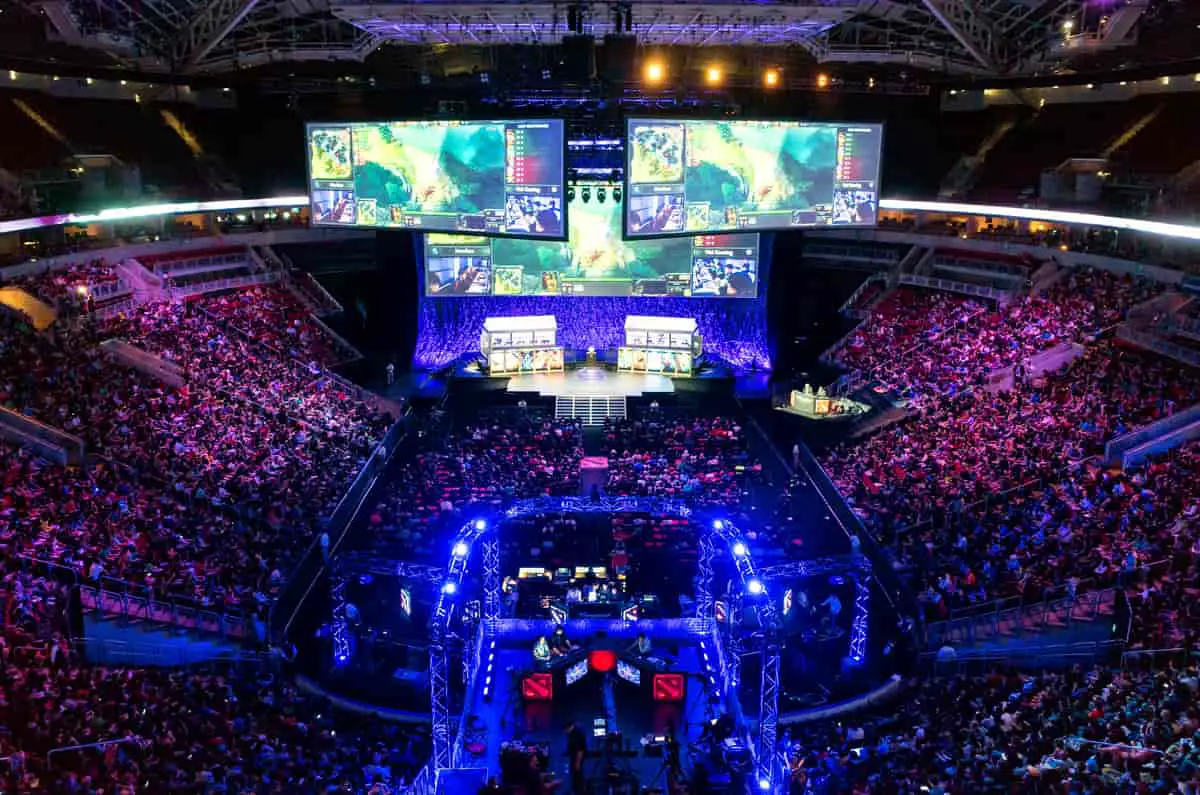The world of esports has burgeoned into a global phenomenon, captivating millions of enthusiasts and spectators alike with its thrilling competitions and high-stakes gameplay. As the esports industry continues to expand, there is a growing recognition of the importance of addressing the mental health and well-being of professional gamers.
Impact of High-Pressure Environments
The nature of competitive gaming necessitates long hours of practice and preparation to maintain proficiency and stay ahead of the competition. Professional gamers often find themselves immersed in a grueling cycle of training sessions, scrimmages, and tournament play, with little time for rest or relaxation. The constant pressure to improve and excel can lead to stress, anxiety, and burnout, as players struggle to meet the expectations placed upon them.
Moreover, the public nature of esports competitions means that players are subject to intense scrutiny and criticism from fans, analysts, and the media. Every move, every decision, and every defeat is scrutinized and dissected, often in real-time, amplifying the pressure to perform and succeed in dota 2 betting. The fear of failure and the stigma associated with underperformance can weigh heavily on players, leading to feelings of inadequacy and self-doubt.
In addition to external pressures, professional gamers must also contend with the inherent volatility of the esports industry. With roster changes, team disbandments, and fluctuations in prize money and sponsorship opportunities, the landscape of competitive gaming is as unpredictable as it is competitive. The uncertainty surrounding career longevity and financial stability can exacerbate stress and anxiety among players, further compromising their mental well-being.
Furthermore, the sedentary nature of gaming and the isolation of training facilities and gaming houses can contribute to physical and emotional health problems. Prolonged hours of screen time can lead to eye strain, headaches, and sleep disturbances, while the lack of social interaction and support networks can foster feelings of loneliness and isolation. Without adequate support and resources, professional gamers may struggle to maintain a healthy work-life balance, leading to increased risk of mental health issues.
Recognizing the impact of high-pressure environments on mental health, stakeholders within the esports industry have begun to take steps to address these concerns. Esports organizations and governing bodies are implementing policies and programs aimed at promoting mental wellness and providing support services for players in need. This includes access to licensed therapists and counselors, mental health education and training, and initiatives to reduce the stigma surrounding mental health issues within the esports community.
Player Burnout and Fatigue
The term “burnout” refers to a state of physical, emotional, and mental exhaustion caused by prolonged stress and overwork. In the high-pressure environment of competitive gaming, where players often spend hours upon hours practicing and competing, burnout is a pervasive and ever-present threat. The relentless demands of training schedules, travel, and tournament play can leave players feeling drained and depleted, both physically and mentally.
Fatigue, on the other hand, is a more immediate and acute form of exhaustion that can impair performance and cognitive function. It can be caused by a variety of factors, including sleep deprivation, poor nutrition, and inadequate recovery time between gaming sessions. In the fast-paced world of esports, where every millisecond counts, even the slightest lapse in focus or reaction time can have devastating consequences for players and their teams.
The consequences of burnout and fatigue extend far beyond the virtual arena, impacting every aspect of a player’s life. Physical symptoms such as headaches, muscle tension, and gastrointestinal problems are common among esports athletes who push their bodies to the limit in pursuit of success. Mental health issues, including depression, anxiety, and mood disorders, are also prevalent among players who struggle to cope with the relentless pressure and scrutiny of competitive gaming.
One key strategy is the implementation of structured training and competition schedules that prioritize rest and recovery. Players are encouraged to take regular breaks, prioritize sleep and nutrition, and engage in activities outside of gaming to maintain balance and perspective. By fostering a culture of self-care and holistic wellness, esports organizations can help players avoid burnout and sustain long and successful careers in the industry.
Another important aspect of combating burnout and fatigue is destigmatizing mental health issues and promoting open dialogue and support within the esports community. Players are encouraged to speak out about their struggles and seek help when needed, whether it be through counseling, peer support groups, or other resources available to them. By breaking down barriers and fostering a culture of acceptance and understanding, the esports industry can create a more supportive and inclusive environment for players to thrive.
Training in Mental Resilience
Training in mental resilience encompasses a variety of strategies and techniques designed to help players build and strengthen their psychological skills. These may include:
- Mindfulness and Meditation: Practicing mindfulness and meditation techniques can help players develop greater self-awareness, focus, and emotional regulation. By learning to quiet the mind and stay present in the moment, players can better manage stress and anxiety during intense gaming sessions and tournaments.
- Cognitive Behavioral Therapy (CBT): CBT is a therapeutic approach that helps individuals identify and challenge negative thought patterns and behaviors. In the context of esports, CBT techniques can help players overcome performance anxiety, self-doubt, and other mental barriers that may hinder their performance.
- Visualization and Mental Imagery: Visualization techniques involve mentally rehearsing and visualizing successful outcomes and scenarios. By vividly imagining themselves performing at their best, players can boost their confidence and motivation and mentally prepare themselves for the challenges ahead.
- Goal Setting and Positive Self-Talk: Setting realistic and achievable goals is an essential part of building mental resilience. Players are encouraged to set both short-term and long-term goals and to celebrate their achievements along the way. Positive self-talk and affirmations can also help players cultivate a resilient mindset and stay focused on their objectives.
- Stress Management and Coping Strategies: Esports athletes face a variety of stressors, both on and off the virtual battlefield. Learning effective stress management techniques, such as deep breathing, progressive muscle relaxation, and time management skills, can help players stay calm under pressure and maintain peak performance levels.
In addition to individual training, many esports organizations and teams are investing in mental resilience programs and resources to support the well-being of their players. This may include access to sports psychologists, mental health counselors, and other support services aimed at promoting mental wellness and resilience.
Balancing Gaming and Personal Life
Start by identifying your priorities and allocating time accordingly. Determine what aspects of your life are most important to you, whether it’s family, education, career, or health, and make a conscious effort to prioritize these areas while still making time for gaming.
Set clear boundaries around your gaming habits and establish designated times for gaming and personal activities. Create a schedule that allows for dedicated gaming sessions while also carving out time for work, study, exercise, socializing, and relaxation.
Effective time management is key to balancing gaming and personal life. Use tools such as calendars, planners, or productivity apps to organize your schedule, set goals, and track your progress. Allocate specific time blocks for gaming and stick to them to avoid excessive gaming sessions that encroach on other responsibilities.
Communicate openly with family members, friends, and peers about your gaming interests and commitments. Be honest about your gaming habits and discuss any concerns or conflicts that may arise. Strive to find compromises and mutual understanding that allow you to pursue your passion for gaming while still nurturing your relationships and social connections.
Conclusion
Ultimately, the well-being of professional gamers is a multifaceted issue that requires a concerted effort from all stakeholders within the esports ecosystem. By prioritizing mental health and implementing comprehensive support systems, the industry can ensure that players are able to thrive both inside and outside of the game. As esports continues to evolve and grow, it is imperative that we prioritize the health and well-being of those who make it all possible – the players.







